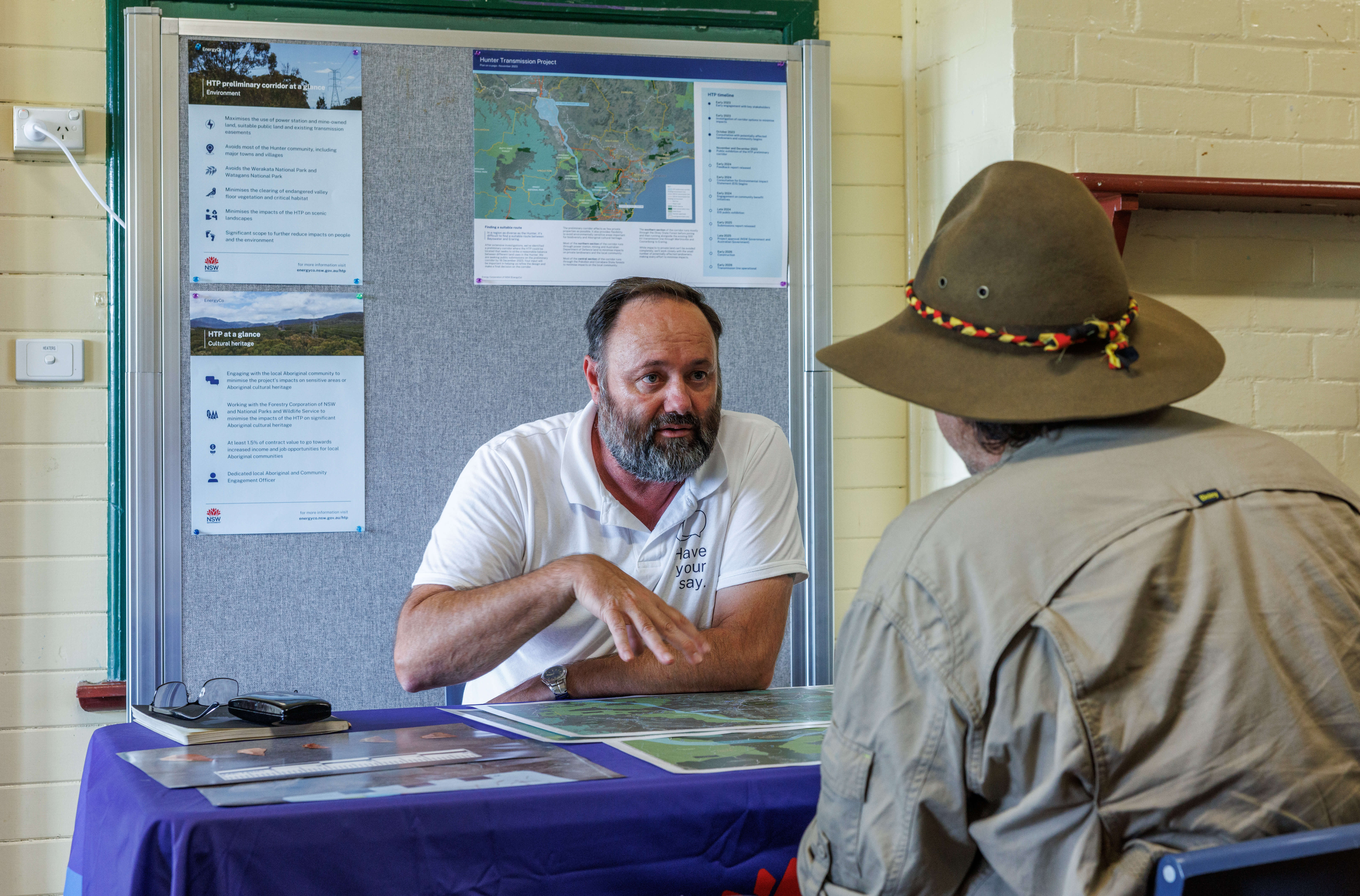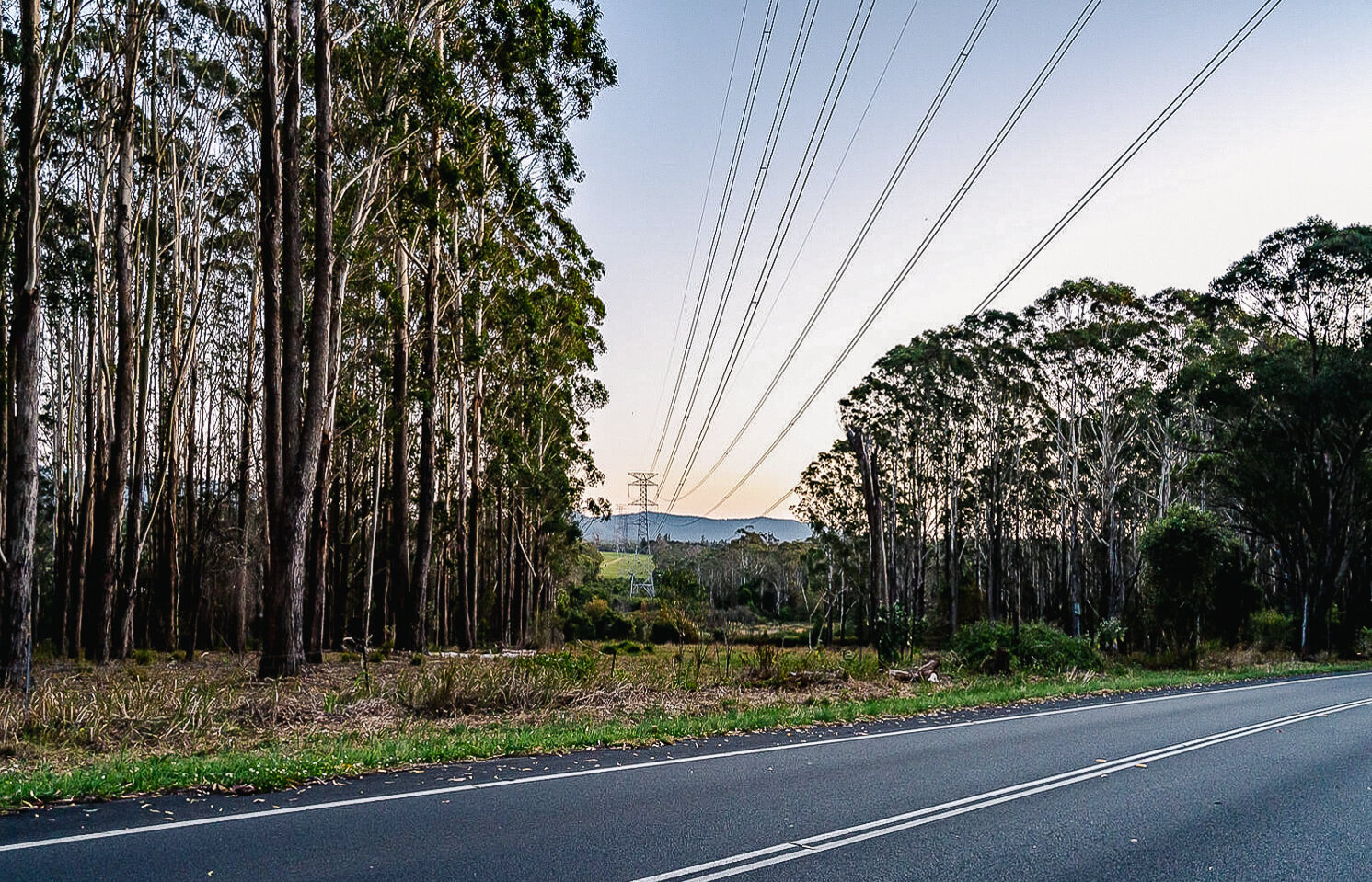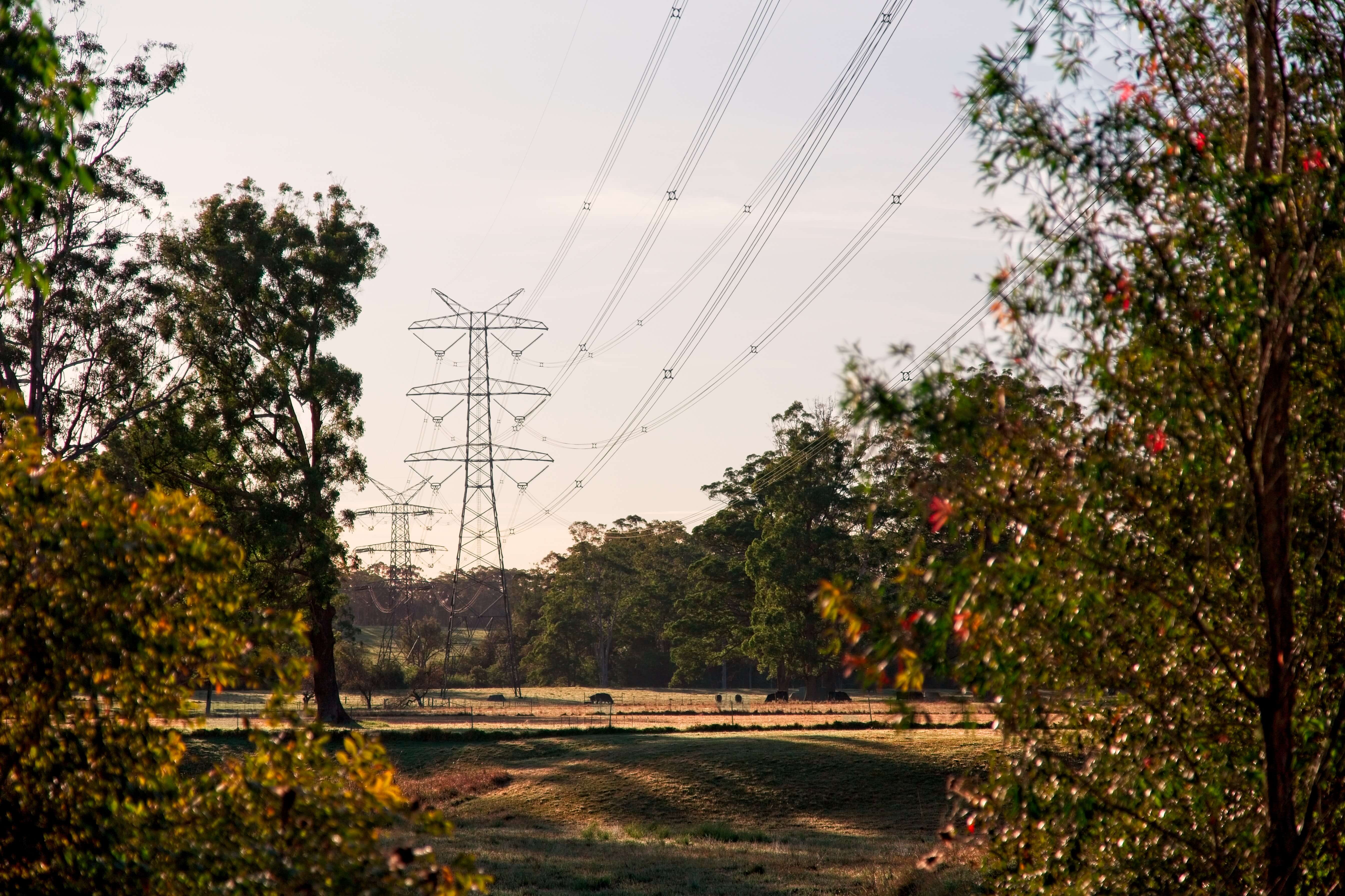-
Early community consultation
We began consulting with the community about the project in October 2023.
To learn more about how early community consultation helped shape the Hunter Transmission Project, view our May 2024 community update report.
-
Consultation on the environmental impact statement
The environmental impact statement (EIS) for the Hunter Transmission Project was on public exhibition from 27 August to 24 September 2025.
To learn more about planning approvals and the EIS, see the page environmental impact statement for the Hunter Transmission Project, or visit the digital EIS.
-
Project delivery
Community engagement will continue during project approvals, detailed design and construction.
Keep up to date
Register to receive the latest project information and announcements including updates and opportunities to get involved.
Upcoming events and activities
Community information sessions
Community and stakeholder feedback is helping refine the Hunter Transmission Project to reduce local impacts and improve outcomes for people, land and the environment.
To receive updates about future sessions, sign up for our newsletter.
Our approach to community engagement
We’re working closely with the community to minimise the impacts of the Hunter Transmission Project on people and the environment and to maximise the project’s benefits for the region.
Through early and ongoing engagement, we’ve gathered local knowledge and feedback that’s helped shape the project’s design. We’re engaging with affected individuals, the Aboriginal community, environmental groups and other key stakeholders to understand issues, protect sensitive areas and help guide how the project is planned and delivered.
We have a dedicated local team available to answer questions, provide information, investigate concerns and involve the community in the planning of the project.
Our Hunter-Central Coast Regional Reference Group (RRG) also provides a forum for strategic discussions between EnergyCo and the broader Hunter community about the Hunter Transmission Project.
How your feedback helps shape our work
Community feedback plays an important role in how we plan and deliver the Hunter Transmission Project. It helps us understand what’s important to the community, respond to concerns and make decisions that minimise impacts
Learn about the role of the regional reference group and how you can get in touch with its members.
Explore where the transmission lines will run and how early community feedback helped shape the corridor.
Consultation updates
Our reports keep the community informed with detailed updates at key stages of the project.
Browse our library of reports, fact sheets and project updates
Refining the Hunter Transmission Project
An update on project developments, including refinements to the Hunter Transmission Project HTP corridor and next steps.
Shaping the Hunter Transmission Project
Sharing the revised Hunter Transmission Project corridor, shaped by early community feedback.
Hunter Transmission Project overview
Introducing the Hunter Transmission Project to the community and inviting early feedback on the preliminary corridor.
Learn more about the Hunter Transmission Project
Get in touch with the Hunter Transmission Project community team
Send the local Hunter Transmission Project community team an email at [email protected]
Phone us on 1800 645 972 (9am to 5pm, Monday to Friday)
Get in touch with EnergyCo
1800 118 894 (9am to 5pm, Monday to Friday)
Sign up for our Powering NSW e-newsletter.


